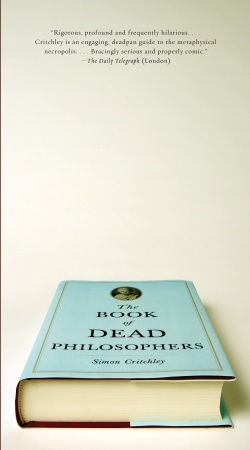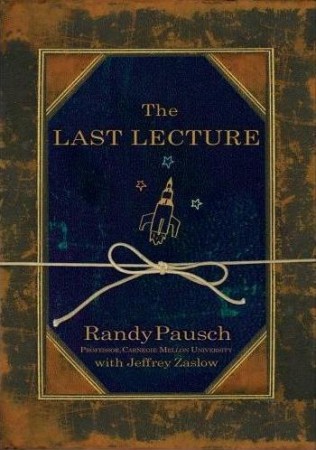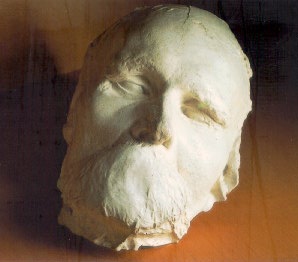
The Book of Dead Philosophers has on its cover a photo of a book with the title The Book of Dead Philosophers. The book in the photo is lying on its back, presumably in a supine, dead-book pose.
This is already annoying on many levels. But I looked inside anyway, and the introduction started with a quote from Montaigne’s “That to Philosophize is to Learn How to Die,” which went thusly: “If I were a maker of books, I would make a register, with comments, of various deaths. He who would teach men to die would teach them to live.”
Oh well, this is better, I thought. Kind of a how-to book on dying. I’m all for that. I’m entirely susceptible to the idea that if I knew how to die I’d know how to live. It might explain so much, I mean, about my general level of despair: I’ve got no clue how to die properly.
It’s not just me. Others also want to know how-to-die-and-therefore-how-to-live. That explains why The Last Lecture by Randy Pausch is such a bestseller. That book is designed to look like a 19th century primer lovingly tied up in a hunk of string, as if Tom Sawyer once toted it to school (and chucked it into the bushes so he could skip out with Huck Finn, I hope). It still lines the shelves of Barnes & Noble, the ones that face you as you come in. But I wasn’t fooled by Randy P. Somehow I knew he had nothing to tell me. Aim high, be nice, don’t sweat the small stuff—no use, any of those chipper bromides we’ve heard all our lives.

However, you figure that out of all the philosophers in history, somebody’s got to have said something pretty good, and because I don’t have time to read them myself it would be excellent if Simon Critchley, himself a continental philosopher, would do the heavy lifting on this one. Apparently, he did, in The Book of Dead Philosophers. Thanks, Simon!
But then I read the book, and goddammit, the thing really is a “register…of various deaths” only with hardly any comments on Topic A. The bulk of the book is given over to a section called “190 or So Dead Philosophers” which briefly describes each one’s main contribution to philosophy and then lists how he (it’s usually a he) died. Here’s one:
Arcesilaus (316/315 – 241 BC): Founder of what became known as “the Middle Academy” who introduced skepticism into the school but wrote nothing. Arcesilaus refused to either accept or deny the possibility of certainty, but advocated a suspension of judgement or epoche in all things. He died through drinking too freely of unmixed wine.
Now I ask you, is that in any way helpful?
I, too, can manage to die through drinking too freely of unmixed wine, or something else just as bad, without any acquisition of wisdom whatsoever. As for Arcesilaus’ philosophy, it isn’t any too impressive, on the face of it. He didn’t write—and writing’s the hard part—but apparently gassed on about suspending judgment when it comes to the possibility of certainty, which people do every day while waiting for the bus.

Death of Socrates; he was okay with it, but everyone else took it big
It seems Simon Critchley has sold us a lemon. “Very simply stated,” he says, “this is a book about how philosophers have died and what we can learn from philosophy about the appropriate attitude toward death and dying.” But half the time he doesn’t tell how the philosopher died—plenty of “unknown causes” here among the ancient ones—and the crucial “what we can learn” part is left out of almost every single entry. Did Arcesilaus die in a stupid way because his philosophy is itself stupid? Or is death by drinking unmixed wine actually a great way to go, and it was Arcesilaus’ insight into the importance of suspending judgment that led him to the unmixed wine orgy? Simon sez nothing. We get to work it out for ourselves.
(Brian to imitative followers in Life of Brian: “You’ve got to work it out for yourSELVES!”
Imitative Followers: “We’ve got to work it out for ourSELVES!”)
So you start flipping through looking for more promising philosophers. Schopenhauer, you think, there’s the boy to provide some straight talk about death. Simon calls Schopenhauer “the Eeyore of Continental philosophy” and says that in Sch’s view, “life is a constant dying in a state of suffering.” Also, “the world is simply a series of fleeting appearances. Behind these appearances there lies a vast, irrational, impenetrable, and merciless Will.” It’s no good committing suicide because you just perpetuate the illusion that we humans have any will of our own to exercise. However, the Will obviously continues after our deaths, and we decompose and get reconstituted in different forms. Which isn’t a good thing, because (see above, the part about “constant dying in a state of suffering”).
Schopenhauer died “after a second heart attack and a lung infection. He was found dead sitting in his chair on 21 September 1860.” So there you have it.
As you can tell from the “Eeyore” quip, which is stupid and highly offensive, Critchley is trying for a certain levity. You’d think a guy who’s written On Humor would have a better grip on the how-to aspects of that practice as well, but no. Humor is not his strong suit. For example, about the skeptic Pyrrho, Critchley writes, “it is not known how Pyrrho died, although it would be taking his skepticism too far to deny that it occurred.” As every student can attest, when trapped in a classroom with a teacher who thinks himself funny, this kind of leaden whimsy can really ruin your day.
Critchley’s jocular tone gives you a better idea of the book’s real project, though. In no way does it help with the how-to-die-how-to-live difficulty. No, this is a Bathroom Book for the would-be smart set. See, there’s a degraded class of people who leave books in their bathrooms, especially when they’ve got guests over. If you’re such a guest—and I pity you! escape through the window if you can!–you’re supposed to notice the book, flip through it, regard it as clever and chuckle-worthy, and mention it when you return from the bathroom. That’s why the book has the puckish cover art and the attention-getting title and all the little broken-up bits of quotable text.
You can goose the conversation along over dessert and coffee by saying, “I loved that quote from Baudrillard: ‘Death orders matters well, since the very fact of your absence makes the world distinctly less worthy of being lived in!’” And then you all laugh nasally, with closed mouths, like this: “Mmmh-mmmh-mmh!” In the olden days, one of you would’ve capped it with, “Most amusing!”
After that, it’s strictly gossip about the crazy ways people died, which carries you all through the rest of the social ordeal till you can go home and try not to shoot yourself from shame.

Nietzsche’s death mask (syphillis removes the mouth?)
Camus said there was no more meaningless way to die than to get hit by a car, and then he got hit by a car. Hobbes, the “life is nasty, brutish and short” guy, died peacefully in bed at 91. Althusser strangled his wife Helene while giving her a “neck massage” and got packed off to the insane asylum, though he didn’t die there—Critchley just wants to give us the dirt on the neck massage. Deleuze died of “defenestration,” i.e. he had emphysema and threw himself out the window “to get some air.” Bergson lined up on a cold day in 1940 to register as a Jew, although the Nazis had given him an exemption on account of his fame, and died of the subsequent “chill.” Diderot choked to death on an apricot.
In his conclusion, or “Last Words” (mmh-mmmh-mmmh!), Critchley goes back to cribbing from Montaigne, who’s clearly providing any brainwork involved here:
…[T]o philosophize is to learn the habit of having death continually present in one’s mouth. [That’s the Montaigne part. Here comes Critchley.] In this way, we can begin to confront the terror of annihilation that enslaves us and leads us into either escape or evasion. In speaking of death and even laughing at our frailty and mortality, one accepts the creaturely limitation that is the very condition for human freedom.
Get it? Just by reading this book and talking about it and laughing, mmmh-mmmh, you’re already doing the groundwork for getting yourself free! Right?
Wrong. Errant bullshit. Thanks for nothing, Simon. You said we’d tackle serious Montaigne stuff like, “He who has learned how to die has unlearned how to be a slave,” and this is what you deliver. Looking forward to reading how you died in a subsequent edition of The Book of Dead Philosophers. I see you’ve got yourself penciled in on the last page:
Simon Critchley (1960 – ?): Exit, pursued by a bear.
Mmmh-mmh! Critchley, here’s hoping there’s an enraged grizzly out there with your name on it.

Read more: death, philosophy, Randy Pausch, Simon Critchley, Eileen Jones, Books


Got something to say to us? Then send us a letter.
Want us to stick around? Donate to The eXiled.
Twitter twerps can follow us at twitter.com/exiledonline















14 Comments
Add your own1. bxw | March 23rd, 2009 at 4:35 pm
Just like my third reading of THE GREAT GATSBY, I don’t understand how people get through these door stoppers (maybe not so much a brick in Fitzgerald’s case) after discovering … less than half way through … that the book’s a real pile of shit. Or maybe these reviewers don’t get through to the end, either, like us normal people.
2. Baked Dr. Luny | March 23rd, 2009 at 4:43 pm
Wouldn’t it be nice if serious books about philosophy got published and read, instead of this pop-philosophy bullshit that pulls a happy ending out of it’s ass.
3. Salvor Hardin | March 23rd, 2009 at 10:42 pm
This guys has the real philosophy:
http://www.youtube.com/user/inmendham
http://www.vloggerheads.com/video/video/listForContributor?screenName=3optht0q6ygfg
http://donotgod.ning.com/video/video/listForContributor?screenName=3optht0q6ygfg
4. mechagodzilla | March 23rd, 2009 at 11:11 pm
Reading a book about this kind of shit is just like any other kind of consumable porn: a masturbatory aid, and nothing more.
5. Neilius | March 24th, 2009 at 3:10 am
Brilliant, utterly brilliant! A fabulously written article! Where did you learn to write so spectacularly well? Seriously, I want to know.
6. ak47 | March 24th, 2009 at 5:57 am
Syphillis doesn’t remove the mouth – Nietzsche had the most incredibly cool mustache of the history of mankind. don’t take my word for it, look it up… it’s worth it
7. misterfricative | March 25th, 2009 at 6:37 pm
“I’m not afraid of death, I’m afraid of being forgotten.” Starbuck.
8. FOARP | March 26th, 2009 at 6:03 am
@BXW – I hear on the Great Gatsby, biggest pile of poo lauded as classic novel around.
9. Carpenter | March 28th, 2009 at 8:11 am
So much that is said to be good is really dreg. You are tempted to become cynical, and cynicism always looks smart. But there really are things worth knowing, or at least thinking about, in philosophy. The problem is that when philosophers are professionals, they have to keep writing to sell more books, right? So you get so much dreg. Short quotes from each philosopher is usually enough to learn all about the points he made. Let someone else do the work, and read the summary on the internet.
10. bxw | March 28th, 2009 at 6:15 pm
@Salvor Hardin
HA HA HA HA
Jesus ….. or in the words of the late WESLEY WILLIS: Cut that mullet jerk!
11. Jim | April 2nd, 2009 at 2:46 am
Didn’t Camus wrap his car around a lightpole?
12. Boris | April 6th, 2009 at 5:01 pm
This is the first and last time reading Exile. You remind me of those drunken gopniks, who laugh when somebody falls in Moscow metro, instead of offering a helping hand. Your creed is angst, anxiety, and loserdoom, and it does not matter that you live in L.A. or Leningrad, American or Russian, your kind negates life as it is. So do us a favour will you, leave our world behind.
13. b | April 8th, 2009 at 7:37 pm
It should be noted that the teacher/closed mouth humor continues to the bear comment by critchley’s self-obit. It is an obscure stage direction from shakespeare.
14. Fayyaz | November 23rd, 2010 at 7:07 am
Please don’t judge all philosophy by Simon Critchley. He is a recognised idiot amongst proper philosophers and gives the field a bad name. Your review is spot on. If you really want to find out about old philosophy, try Gottlieb’s “The Dream of Reason”.
Leave a Comment
(Open to all. Comments can and will be censored at whim and without warning.)
Subscribe to the comments via RSS Feed